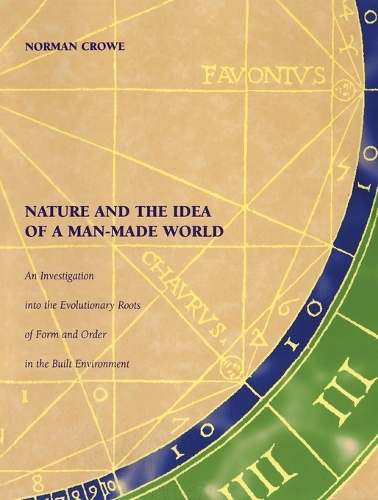
Nature and the Idea of a Man-Made World: An Investigation into the Evolutionary Roots of Form and Order in the Built Environment
(Paperback)
Publishing Details
Nature and the Idea of a Man-Made World: An Investigation into the Evolutionary Roots of Form and Order in the Built Environment
By (Author) Norman Crowe
MIT Press Ltd
MIT Press
22nd January 1997
United States
Classifications
General
Non Fiction
720.1
Physical Properties
Paperback
290
Width 173mm, Height 229mm
454g
Description
Over the course of this century, nature has increasingly been relegated to the province of environmentalists while cities and towns have been turned over to developers and planners. Norman Crowe seeks to overcome this division into the respective realms of specialists by recognizing the independence of both the natural and the man-made through an understanding of the often hidden roots of the world we contrive for ourselves. He argues that we have lost a vital balance by neglecting our traditional motives for building in the first place. He argues for a symbiotic theory of man's making and nature's activity that views the built environment as a form of nature, one that nourishes the generative power as well as other enduring qualities of nature. In this broad-ranging view of architecture and urbanism across cultural boundaries, the author evaluates the connections between the natural and manmade in our towns and cities, farms and gardens, architecture and works of civil engineering. This work draws on the lessons to be learned from the buildings and cities of the past in restoring critical traditional values that have been lost to modernism, which tends to see the built world almost exclusively through the abstractions of post-enlightenment science. The text's starting point is indigenous architecture, the origins of our cities and towns where the first geometries were imposed on nature. It traces our separation from nature over time, from the long period of human history when nature served as a paradigm for creation. The first chapter considers the psychological and practical origins for the practice of what amounts to building an "alternative" nature. Crowe then explores the likely historical roots of this world and investigates our intrinsic quest for unity, the ancient idea that we are responsible for maintaining a harmony between ourselves, what we make, and nature. He traces the effect of our responses to the passing of time and the inevitability of change in the built world and then considers its opposite, the quest for timelessness in response to the inevitability of time passing. This book concludes by looking at the idea of the city as the culminating expression of all of these characteristic responses to nature that manifest themselves in what we build.
Reviews
"Norman Crowe seeks the wonderment of a cooperation between thenatural and the man-made world, and he does so with the hand of anexcellent writer. As a professor and teacher of architecture, hehas reached out well beyond most of his colleagues to understandthe history and ideas governing the current state of architecture"srelation to nature." Kent Bloomer , Yale University "Norman Crowe offers a plausible set of interpretations of the nature of the world that humankind has already built, as well as useful guidance on how we might build better in the future than we are doing now. In contrast with many conventional books that deal with the architecture of the past, he teaches us to see buildings not just as facade patterns and spaces, but also as experiences, feelings, symbols, manmade landscapes, places. This is enormously important." Edward Allen, Architect
